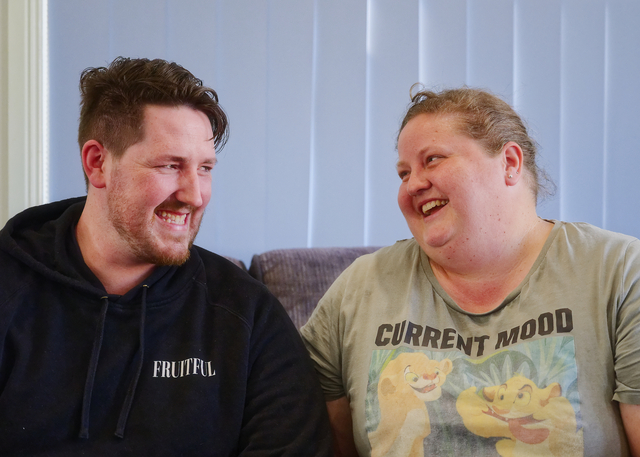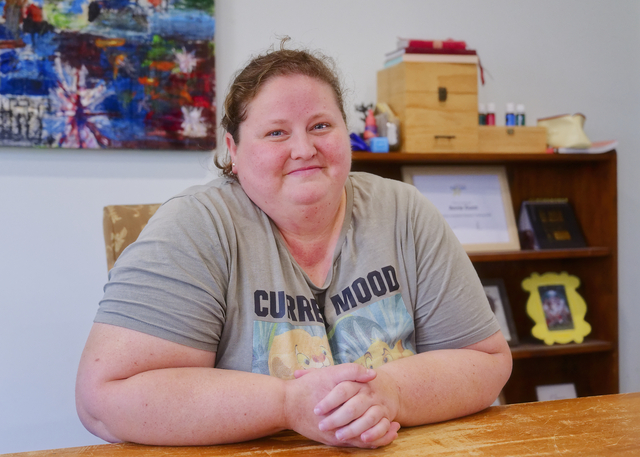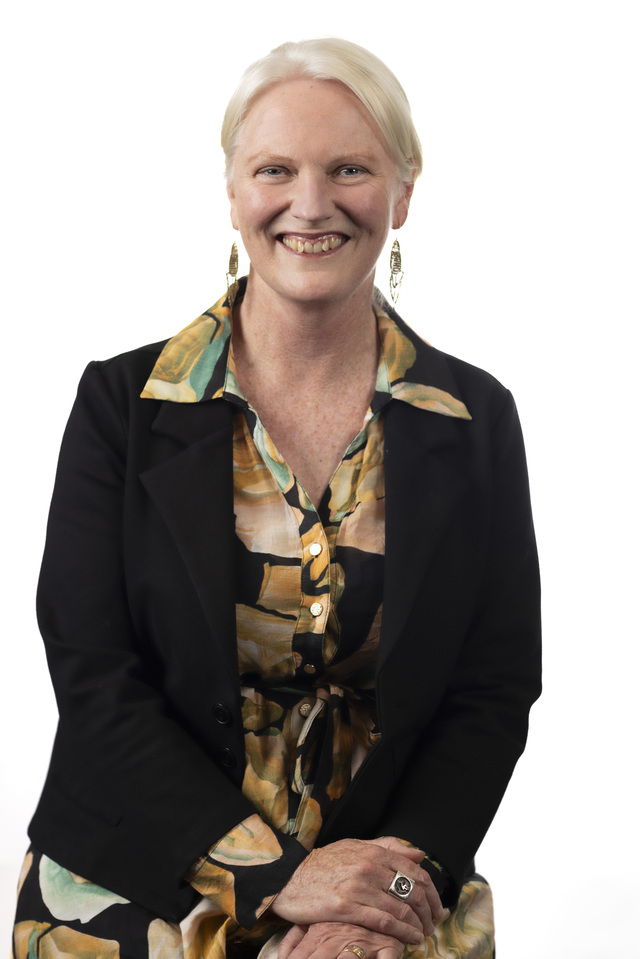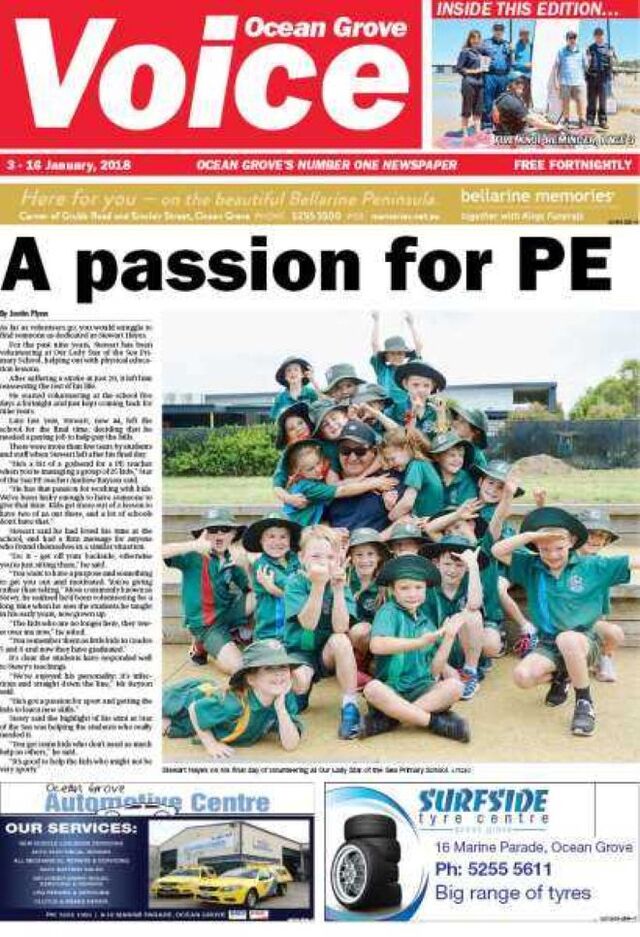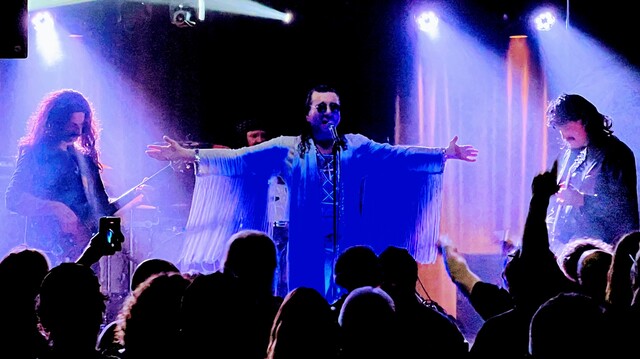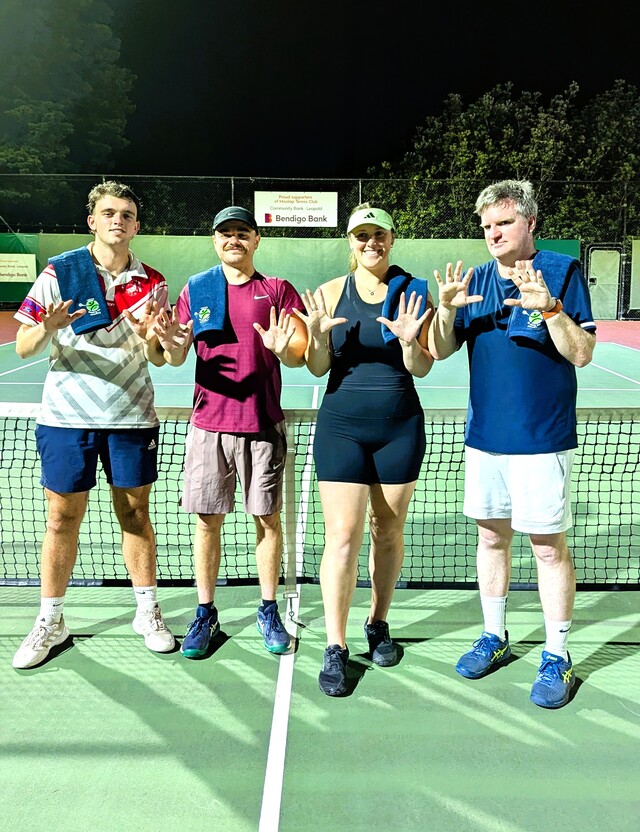Annie Dunn was only 21 when she was diagnosed with chronic myeloid leukaemia nine years ago. With Blood Cancer Month (September) coinciding with Women’s Health Week (September 1 to 5), Jena Carr speaks with Annie about her cancer journey.
Norlane’s Annie Dunn has been living with blood cancer for most of her adult life after being diagnosed nine years ago.
Annie said she remembers feeling really sick and fatigued, leading her to go and get herself checked out by a doctor around 2017.
“I was going to the GP a lot, and he saw that my bloods were a little bit out of whack, but it looked like an infection, so he wasn’t overly concerned,” she said.
“We were just trying to figure out what was wrong, as I was unsure about what was going on, so the doctors and I went down a few different avenues.
“I am a plus-size person, so my doctor thought that maybe it had something to do with that, but I was like ‘no’, as it just didn’t feel right.
“About six to eight months later, my doctor said that something was still not right with my bloods, so he referred me to a haematologist and I found out what it was a couple of months later.”
Annie was left in shock after receiving a diagnosis of chronic myeloid leukaemia (CML – a blood cancer that develops when the body makes too many abnormal white blood cells) at age 21.
“I cried for two reasons; one, because I had been fighting for a year to find out what was wrong, so I was relieved to finally have a name to what it was,” she said.
“I also cried because I got told I had cancer, like ‘you gave me the C-word’, but my doctor told me that I was going to be okay and said that, ‘you’re not going to die as it’s not a terminal thing’.
“For the first year, I just didn’t work as I struggled to get out of bed, so that was a difficult year financially for my partner and me.
“I started to slowly work since then, but financially, it was a big thing because we had to pay for the cost of meds and whatnot, but I also couldn’t work to the potential I wanted to.
“I was also studying at the time, so I finished my studies with blood, sweat and tears along the way; quite literally.”
Now at 30, Annie is clear of cancer, having enjoyed two years of remission (a reduction or disappearance of cancer signs and symptoms).
“I did chemo every day for seven years, and I was tapped out as it’s such a taxing thing, so I feel really thrilled not to have to do chemo now,” she said.
“It also meant that I could go through a winter without needing to worry about catching illnesses, especially since I work in childcare.”
Annie has a fun-loving and caring personality and does not take life for granted, which is reflected in her personal and professional life.
She has been married to her husband Matt for 11 years, and when asked if it was love at first sight, Annie immediately said “no, not at all” as she and Matt laughed.
“We’ve known each other since we were about 12 and he was always that quirky kid,” she said.
“I remember thinking that I felt bad for the woman who would become his wife one day, and now I am his wife, but I don’t regret it at all, and I’m happy I said yes.
“I also love where I work, which is in a kindergarten where I have worked part-time since 2021, and I think I’ve got the best bunch of ladies that I work with.
“One of the reasons why I like getting up out of bed and going to work is also the kids, they’re just one of the big reasons why I turn up.”
Annie said she encouraged anyone living with or in the process of getting diagnosed with cancer to establish a good support network and continue asking their doctors questions.
“As tough as it was mentally, I think having a support network and people around us made it a little bit easier,” she said.
“It’s important to have a good support network and community, and ask for help when you need it, as there were many times we needed help, but I think, at the time, we didn’t want to burden anyone.
“Also, be sure to ask questions and burden your doctors; many of us find we don’t want to burden them, but annoy your doctor as they’re there for a reason.
“The symptoms can get unseen, so I feel like it is really important for people to get checked and to fight if there’s something not right, which I’m glad I did.”
September is recognised as Blood Cancer Month and, as the month coincides with Women’s Health Week (September 1 to 5), the Leukaemia Foundation is urging people nationwide to get informed and help support girls and women impacted by cancer.
Blood cancer is the second most common cancer diagnosed in Australian women overall, behind only breast cancer, according to the Leukaemia Foundation.
Chief executive Chris Tanti said more than 8300 women were diagnosed with blood cancer last year, with numbers expected to increase to almost double by 2035.
“The burden of blood cancer on girls and women in Australia is real, and we are seeing it firsthand on a daily basis,” he said.
“The toll in lives lost is even more confronting as, last year alone, 2530 women lost their lives to blood cancer and by 2035 that figure is projected to soar past 6500, which is almost three times as many.
“It’s time to speak up, speak louder, and act faster as women in Australia depend on it, and we need to ensure that every girl and woman has the awareness, information, support and care they deserve.
“They’re bearing the brunt of this insidious disease and without better care, support, treatment and investment in vital blood cancer research, thousands of women won’t get the chance to live out the plans they’ve made for their lives.”

